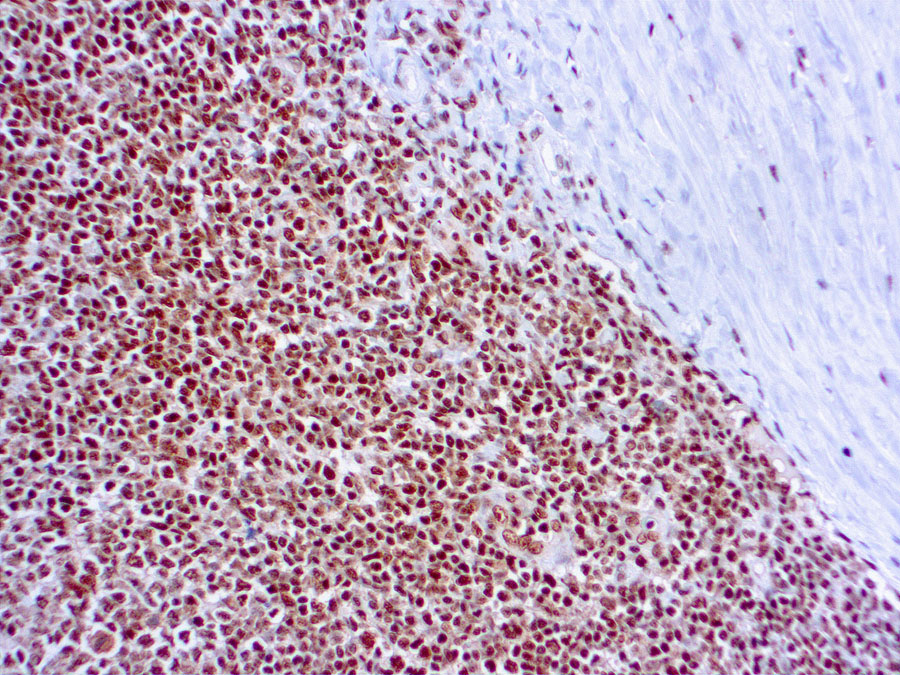Antibody (Suitable for clinical applications)
| Specification | Recommendation |
|---|---|
| Recommended Dilution (Conc) | 1:50-1:100 |
| Pretreatment | Citrate Buffer pH 6.0 |
| Incubation Parameters | 30 min at Room Temperature |
Prior to use, inspect vial for the presence of any precipitate or other unusual physical properties. These can indicate that the antibody has degraded and is no longer suitable for patient samples. Please run positive and negative controls simultaneously with all patient samples to account and control for errors in laboratory procedure. Use of methods or materials not recommended by enQuire Bio including change to dilution range and detection system should be routinely validated by the user.
RPA/p34 Information for Pathologists
Common Uses By Pathologists:
RPA/p34 is expressed in most cancer cells. It exhibits moderate to strong nuclear staining with additional cytoplasmic positivity in a few cases. Liver cancers showed generally strong immunoreactivity in cholangiocarcinomas. Weaker staining was observed in hepatocellular cancers compared to other malignancies.
| RPA/p34 General Information | |
|---|---|
| Alternate Names | |
| Molecular Weight | |
| 29.2 kDa | |
| Chromosomal Location | |
| p35.3 [chr: 1] [chr_start: 27891524] [chr_end: 27914746] [strand: -1] | |
| Curated Database and Bioinformatic Data | |
| Gene Symbol | RPA2 |
| Entrez Gene ID | 6118 |
| RefSeq Protein Accession(s) | NP_002937; NP_001284487; NP_001273005 |
| RefSeq mRNA Accession(s) | NM_002946; XM_024448862; NM_001355128; NM_001286076; NM_001297558; XM_024448864; NM_001355129 |
| RefSeq Genomic Accession(s) | NC_000001 |
| UniProt ID(s) | P15927 |
| PharmGKB ID(s) | PA34652 |
| KEGG Gene ID(s) | hsa:6118 |
| General Description of RPA/p34 . | |
| This antibody reacts with a 32-34 kDa protein known as replication protein A (RPA). RPA is involved in DNA replication, repair and recombination. Human RPA is a stable heterotrimer of 70 kDa, 32-34 kDa and 11-14 kDa subunits (RPA70, RPA32 and RPA14 respectively). RPA is required for the SV40 large tumor antigen-catalyzed unwinding for SV40 DNA and stimulates DNA polymerase alpha and δ. | |




There are no reviews yet.